
Alan Shapiro’s fourteenth collection of poetry, Proceed to Check Out, is a kind of summing up, or stock-taking, by an aging poet, of his precarious place in a world dominated by the ever-accelerating pace of technological innovation, political disruption, personal loss, and racial strife. These poems take on fundamental subjects—like the nature of time and consciousness and how or why we become who we are—but Shapiro presses them into becoming urgent and timely.
Employing idiomatic range and formal variety, Shapiro’s poems move through recurring dreams, the coercions of childhood, and the mysterious connections of mind and matter, pleasure and memory. They meet an abiding need to find empathy and understanding in even the most challenging places—amid disaffection, public discord, and estrangement. His grasp of contemporary life—in all its insidious violence and beauty—is distinct, comprehensive, and profound.

In this imaginative novel, worlds continue to collide as Floyd, an American writer recovering from a devastating neuro-viral attack, and his wife, Beverly, immerse themselves in Hardy’s world. While pondering the enigma of a fictional character living in a factual building, Floyd is approached by Hardy himself—despite his death in 1928.
This phantom—possibly conjured out of Floyd’s damaged brain—tasks the Americans with finding out what Hardy missed in love. Embarking on their quest, they visit Hardy’s birthplace, home, and grave, exploring the Dorset landscape and the famous novels with their themes of tormented love. Peering into the Victorian past, they slowly dismantle the clutter of screens that Hardy placed around his private life, even as their own love story unfolds, filled with healing and hope.
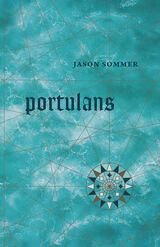
to say? Your eyes, though, scanning upward in their sockets,
do seem to search memory, but for what may be gone already,
gone to where it goes—wherever it came from—gone as can be imagined,
down into things, in past flesh and bark, marrow and pith, and down,
down into molecule, atom, particle, vanishing into theory.
Through this collection, Sommer takes us to the ocean floor, into the basement, out the front door, through multiverses, and in and out of dreams. Along the way, he considers whether art—the beauty of the map—can provide momentary meaning against a backdrop of oblivion. Drawing on history and myth, the voices in these poems consider what can and cannot be known of the self and the other, of our values, and of what we insist has permanence. These are poems of searching. Like ancient cartographers who lent lavish decoration to their maps, the poems in Portulans illuminate possibilities of beauty in each journey.
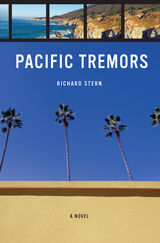

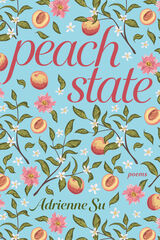
Peach State has its origins in Atlanta, Georgia, the author’s hometown and an emblematic city of the New South, a name that reflects the American region’s invigoration in recent decades by immigration and a spirit of reinvention. Focused mainly on food and cooking, these poems explore the city’s transformation from the mid-twentieth century to today, as seen and shaped by Chinese Americans. The poems are set in restaurants, home kitchens, grocery stores, and the houses of friends and neighbors. Often employing forms—sonnet, villanelle, sestina, palindrome, ghazal, rhymed stanzas—they also mirror the constant negotiation with tradition that marks both immigrant and Southern experience.

Born in Havana in the wake of the Cuban Revolution, Suárez is now one of more than a million Cubans living in the United States. In Palm Crows Suárez offers a compelling canción of loss, longing, and memory as he explores the meaning of exile. In poems that range from playful and fantastic to elegiac and meditative, he writes about “the in-betweenness of spirit” of those who have left their home and must try to forge a new one in the United States.
Palm Crows shows us an almost mythical Cuba, offering a compelling testament both to the immigrant experience and to our own search for home.



The innocence and Keatsian beauty of Euclid's geometry become poignant from a perspective that encompasses all that is non-Euclidean as well as space, time, and the theory of matter. With rare wit and linguistic daring, Waldner opens resonant channels of communication that show there is indeed more than meets the eye—or the mind—in her poems.
Hand to Mouth (Twist and Shout)
Cold comes slow up out
of the darkness among the leaves
that smell so good when bruised
Do you, too, recognize me
god so soon?
Her First Reckoning
Pour wine into vessels the violet of woods,
wine of the reddening stars.
You are god, you can do it.
Your lover calls you St. John the Conqueror.
I have heard her.
This is the name of a root.
Asperge the thousands and thousands of rooms
in which photosynthesis promises sun
to the acolyte cells. Rain yourself on a leaf.
Birch. The bark is malleable as mushroom flesh.
Show that you know me. Scratch out my name
with this tree. My name of trees.
On the day I arrive at the door of my death,
myself now hard to tell
from the trees that had hid it from me,
I will demand that you love me.
You made me like this.
Why did you make me like this?
Transitive, Intransitive: Extemporary Measures
Two crows above the marsh: sew.
Stitch the seventeen sleek shades of blue
to the shadow-patterned greens below.
See fit to make me a suitable view who
having nowhere to else to go
might as well wear this world well.
Llama necks periscope the view:
yonder, across the water, you
testing the air now a crow
chases a redwing blackbird through.
What can I show you who sees
I don't believe? For now,
what the eye of the needle sees:
through through through:
clouds, birds, me, trees;
soon: in, out, with, to;
something moving, something moved:
a stitch in time's an avenue,
future's sutures' revenue—
“the shining hour” improved.

Winner of the 2008 Paterson Award for Literary Excellence
"Weaver has crafted a virtual planet in this book with plenty of alternate geographies for readers of all flavors and stripes. Marvelous. Huge. Prodigious.”
—North American Review


“Hearing the click behind him, Parker threw his glass straight back over his right shoulder, and dove off his chair to the left.” When a job looks like amateur hour, Parker walks away. But even a squad of seasoned professionals can’t guarantee against human error in a high-risk scam. Can an art dealer with issues unload a truck of paintings with Parker’s aid? Or will the heist end up too much of a human interest story, as luck runs out before Parker can get in on the score?
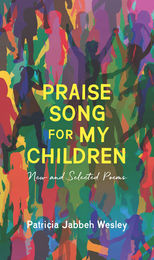
Wesley writes poetry that moves with her through life, land, and love, seeing with eyes that have witnessed both national and personal tragedy and redemption. Born in Tugbakeh, Liberia and raised in Monrovia, Wesley immigrated to the United States in 1991 to escape the Liberian civil war. In this moving collection, she invites us to join her as she buries loved ones, explores long-distance connections through social media, and sings bittersweet praises of the women around her, of mothers, and of Africa.
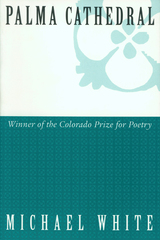
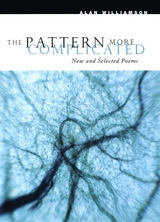
The Pattern More Complicated assembles Williamson's most important, representative poems, marking the trajectory of poetic development and the recurrence of themes across the span of four previous collections to present a survey of a major American poet in a single volume.
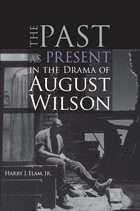
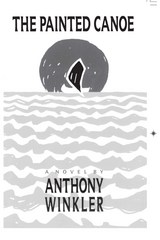
Still on land are the villagers, the woman, and the sons who comprise life for Zachariah. While he struggles with the forces of nature, the natural faith of the villagers encounters the incapacity for belief of the troubled English doctor. As the superstitions and certainties of Jamaican life and the consequences of science meet, Winkler reveals a rich understanding of the precarious balance between thought and reality, between the coincidental and the miraculous.
"This is one of those rare novels that announces its presence with such modest grace that the size of its ambition and accomplishments steals gently into the consciousness."—Michael Thelwell, Washington Post Book World
"Mr. Winkler deftly unfurls his exquisitely written story, which is redolent of the colorful patois and chaotic flavor of rural Jamaican culture."—Bob Allen, Baltimore Sun


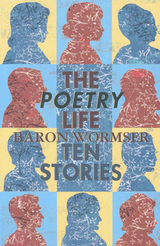
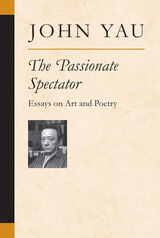
Yau’s diverse critical sensibilities permeate The Passionate Spectator as he moves seamlessly between the visual and literary arts. Highlights of this collection include an essay on the poet as art critic, a study of the relationship between Kevin Young’s poetry and the paintings of Jean-Michel Basquiat, and an imaginative piece in which Yau speculates about what Jorge Luis Borges would have created had he been a visual artist. In the title essay, Yau lays out the duty of the spectator—a duty shared by viewer, reader, critic, and artist: “it is up to us to experience art, to engage and believe in its power.”
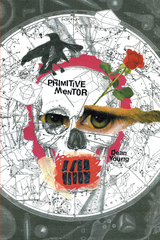

In this, the fourth volume to win the Brittingham Prize in Poetry, Lisa Zeidner’s twenty-two poems introduce a surprising range of characters, from a cryogenically preserved caveman to a 78-year-old widow arrested for shoplifting. Some of the narratives collected here are unusually long (like “Dementia Colander,” a mock-epic about the history of an unnamed nation whose king suffers a rare disease). These poems attempt to offer not just poetic moments, glimpses of joy or loss, but a sense of self in time and history—whole lives in all of their busy-ness and disorder. Lisa Zeidner’s dark wit considers any subject, from the Holocaust to child abuse, a subject for intellectual playfulness and emotional discovery.
Despite the range of subjects, the poems in Pocket Sundial are bound by a concern for time, for how we think about time. These are poems about memory, foresight, anticipation, regret—all of chronology’s complexities.

Selma detests my small considerations of strangers. When she catches me nodding at the panhandlers she ignores, or opening doors for women I don't know, she says nothing, but holds herself tall and aloof. She is doing it for the both of us. She is compensating for what she believes is a weakness in her husband that, even in this day and age, a black man still cannot afford. And she may be right. But at this stage of my life I feel not so much black or male, middle-aged or well-to-do or professional, as incomplete. I am son to my father, father to my boys, husband to my unhappy wife, but somehow more lost than found in the mix.
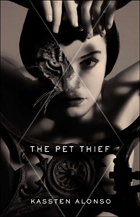

Jen Beagin’s funny, moving, fearless debut novel introduces an unforgettable character, Mona—almost 24, cleaning houses to get by, emotionally adrift. Handing out clean needles to drug addicts, she falls for a recipient who proceeds to break her heart in unimaginable ways. She decamps to Taos, New Mexico, for a fresh start, where she finds a community of seekers and cast-offs. But they all have one or two things to teach her—the pajama-wearing, blissed-out New Agers, the slightly creepy client with peculiar tastes in controlled substances, the psychic who might really be psychic. Always just under the surface are her memories of growing up in a chaotic, destructive family from which she’s trying to disentangle herself. The story of her journey toward a comfortable place in the world and a measure of self-acceptance is psychologically acute, often surprising, and entirely human.
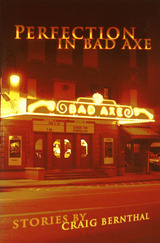
You could find out anything at Jim's, and Larry and I liked to be in the know. Information (not gossip) was passed back and forth constantly. Did you hear about the four couples engaged in "wife- swapping" in town? The mechanics and gas pumpers at Jim's could fill you in. Were you interested in the last time the Baptist minister beat his wife? Who your cute French teacher slept with a couple nights ago? Jim's had the answers. The place held another attraction for me: if you were under twenty-one and wanting some liquor for Friday night, Jim's son, Jimmy the Bomb, just out of the Marine Corps, had no problem picking up a bottle or two for you at the liquor store on the east side of town.
Set mainly in the Midwest, these tales are inhabited by ordinary, decent people who, often to their surprise, find joy and meaning under difficult circumstances. Many of the stories depict isolated moments of perfection in a world that routinely forces its imperfections on us. A teenager wrestles with guilt over an accident he caused in “Perfection in Bad Axe.” In “A Knight Pursued,” a young prosecuting attorney confronts on the same day his first autopsy and his wife’s unexpected desire to have a baby. A devout, hardworking business owner is drawn into a lawsuit that threatens his marriage and leads him to question his most deeply felt principles. “Center of Gravity” finds a middle-aged law professor overcome by his chaotic life and searching for a degree of peace. These are the finely developed characters of Bernthal’s stories—people we recognize, but who never seem overly familiar. Interesting, substantial, and utterly engrossing, each one could be just like any one of us, an ordinary Jane or Joe, trying to maintain or find order in a life sometimes filled with disorder.


From the invisible landscape of elementary particles to Johann Wolfgang Von Goethe’s love of the smell of rotten apples, Blair’s poems direct us through a “great wide world that is / ours and never ours” and somewhere among the rolling tercets, the transcendent becomes not only possible, but entirely inevitable.
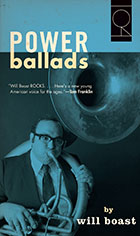
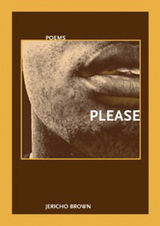
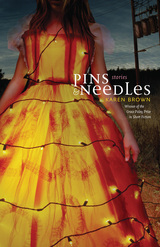
In "She Fell to Her Knees," Nell inherits the neglected house in which her mother died years before, and begins an affair with the neighbor. The narrator of "Apparitions," who has recently returned the blind grandson she was raising to the care of his mother, invites a confused young man into her home. In "The Ropewalk," a bartender haunted by her abandonment of her own child aids a customer in a struggle for custody of her daughters. A pregnant teenager in "Unction" comes to accept the reality of her situation while working a summer job counting parts in a bookbinding machine shop. Annie, the young mother with a tragic past in "Pins and Needles," leaves her infant daughter to go on an errand in a snowstorm, and picks up a boy she doesn't know.
What remains a constant in these stories is the tangible presence of the natural world. Each story moves toward the moment in which its characters, navigating loss, learn acceptance. Like the single mother in "Destiny," they see their lives happen—"all around, just then, forever.
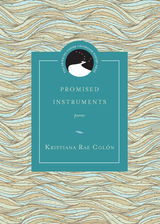
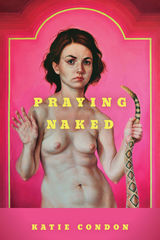
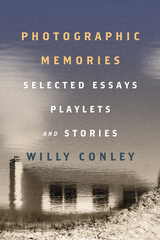
Original photographs taken by the author accompany his writings and invite the reader to contemplate the often-blurred lines between reality and memory.
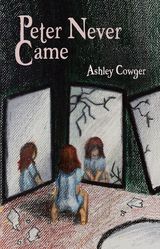
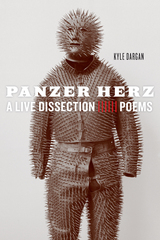
The keen and jagged blade that is Kyle Dargan’s eye is drawn in Panzer Herz: A Live Dissection, the final poetic compilation of a lived and inherited masculinity.
Dargan targets the armored heart, or “panzer herz”—a site where desire, violence, family, politics, blackness, and capitalism all intertwine with gender. Pierced with the question—What if the heart, in the aforementioned capacity, was not a constricting vessel, struggling to withstand internal and external pressures, but instead was a space of release?—the collection opens a cishet masculinity to the inquiries and explorations that the traditional conscription of gender discourages and often vilifies.
I long to abandon this violent / vagrancy, but the roads . . . teem with other men who know / no training, who see upon me / my teachers’ marks and ache / for the elicitation of drawn steel.
The denser blades of compassion and accountability are Dargan’s arms of choice to carry, and not conceal, the weapons he uses to probe his own heart and the hearts of the men and women who shaped him into a man that has been . . . and is unbecoming. The poetic paring of layered lines, the nicking of the process, these poems crimson the page—and not for scarlet spectacle. These versed incisions and sutures are the oeuvre dedicated to the outgrowing of the writer and the “man” that began it.
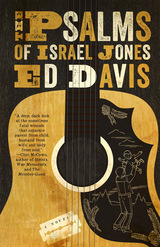
Secrets and snakes, rock and gospel, guilt and grace.
The Psalms of Israel Jones is the story of a father and son’s journey towards spiritual redemption. This novel tells the tale of a famous father trapped inside the suffocating world of rock and roll, and his son who is stranded within the bounds of conventional religion.
When Reverend Thomas Johnson receives an anonymous phone call, he learns his Dylanesque rock star father is acting deranged on stage, where he’s being worshipped by a cult of young people who slash their faces during performances. In his declining years, Israel Jones has begun to incite his fans to violence. They no longer want to watch the show—they want to be the show.
Eager to escape troubles with his congregation as well as gain an apology from his dad for abandoning his family, Reverend Johnson leaves town and joins Israel Jones’s Eternal Tour. This decision propels him to the center of a rock and roll hell, giving him one last chance to reconnect with his father, wife, congregation—and maybe even God.
The Psalms of Israel Jones is the 2010 Hackney Literary Award winner for an unpublished manuscript.
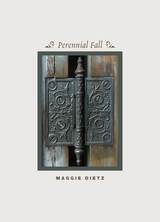
Dietz creates a world alive with detail and populated with the everyday and strange: amusement-park horses named Virgil and Sisyphus, squirrels hanging over tree branches “like fish.” By turns humorous and pained, direct and mysterious, elegiac and elegant, the poems trace for us the journey and persistence of the spirit toward and through its “perennial fall”—both the season and the human condition. Cumulatively, the work moves toward a fragile transcendence, surrendering to difficulty, splendor, and strangeness.
“In Perennial Fall, distinct, hard-edged images create a haunting counter-play of distortion, troubled insight or menace. The simultaneous clarity and shadow has the quality of a dream that can be neither forgotten nor settled. This is a spectacular debut and more than that—a wonderful book.”—Robert Pinsky
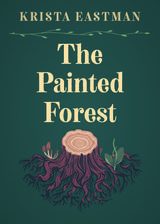
Council for Wisconsin Writers, Norbert Blei/August Derleth Nonfiction Book Award winner
In this often-surprising book of essays, Krista Eastman explores the myths we make about who we are and where we’re from. The Painted Forest uncovers strange and little-known “home places”—not only the picturesque hills and valleys of the author’s childhood in rural Wisconsin, but also tourist towns, the “under-imagined and overly caricatured” Midwest, and a far-flung station in Antarctica where the filmmaker Werner Herzog makes an unexpected appearance.
The Painted Forest upends easy narratives of place, embracing tentativeness and erasing boundaries. But it is Eastman’s willingness to play—to follow her curiosity down every odd path, to exude a skeptical wonder—that gives this book depth and distinction. An unlikely array of people, places, and texts meet for close conversation, and tension is diffused with art, imagination, and a strong sense of there being some other way forward. Eastman offers a smart and contemporary take on how we wander and how we belong.
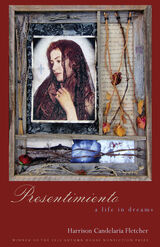

Tracy Fuad’s second collection of poems, PORTAL, probes the fraught experience of bringing a new life into a world that is both lush and filled with gloom. A baby is born in a brutalist building; the planet shrinks under the new logic of contagion; roses washed up from a shipwreck centuries ago are blooming up and down the cape. PORTAL documents a life that is mediated, even at its most intimate moments, by flattening interfaces of technology and in which language—and even intelligence—is no longer produced only by humans. The voices here are stalked by eco-grief and loneliness, but they also brim with song and ecstasy, reveling in the strangeness of contemporary life while grieving losses that cannot be restored. Through Fuad’s frank, honest poetry, PORTAL vibrates with pleasure and dread.
Peeling back the surfaces of words to reveal their etymologies, Fuad embraces playfulness through her formal range, engaging styles from the tersely lineated to the essayistic as she intertwines topics of replication, reproduction, technology, language, history, and biology.
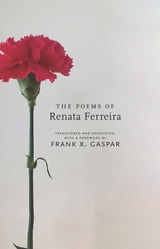

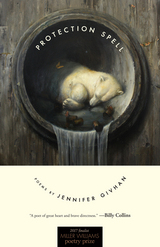
Finalist, 2017 Miller Williams Poetry Prize, edited by Billy Collins
“A poet of great heart and brave directness.”
—Billy Collins
In Protection Spell Jennifer Givhan explores the guilt, sadness, and freedom of relationships: the sticky love that keeps us hanging on for no reason other than love, the inky place that asks us to continue revising and reimagining, tying ourselves to this life and to each other despite the pain (or perhaps because of it). These poems reassemble safe spaces from the fissures cleaving the speaker’s own biracial home and act as witnesses speaking to the racial iniquity of our broader social landscape as well as to the precarious standpoint of a mother-woman of color whose body lies vulnerable to trauma and abuse. From insistent moments of bravery, a collection of poems arises that asks the impossible, like the childhood chant that palliates suffering by demanding nothing less than magical healing: sana sana colita de rana, si no sanas hoy, sanas mañana (the frog who loses his tail is commanded to grow another). In the end, Givhan’s verse offers a place where healing may begin.
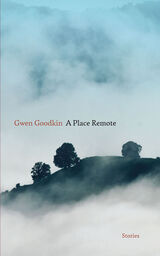
In each of these ten stories, Gwen Goodkin forces her characters to face the dramatic events of life head-on—some events happen in a moment, while others are the fallout of years or decades of turning away. A boy is confronted by the cost of the family farm, an optometrist careens toward an explosive mental disaster, a mourning teen protects his sister, lifelong friends have an emotional confrontation over an heirloom, and a high school student travels to Germany to find his voice and, finally, a moment of long-awaited redemption.
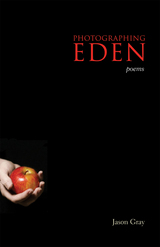
Photographing Eden presents the first full-length collection of poems by a major new talent. The work meditates on several ideas, the crux of which is Eden: spirituality, environmentalism, and the relationships between men and women. Observing, often through the lens of a camera, our state in the world, the poems try to focus sharply on what often seems a blur. The poems are always attentive to artistic mediums and the craft behind them because our struggle is to make something perfect in the imperfect world in which we live, while acknowledging the impossibility of that quest. Gray’s poems range all over, from adventures in Egyptian ruins with machine-gun-toting tourist police to the western edge of the foggy Irish coastline, and to the mythic past, where Adam and Eve visit a zoo and Eden has become a nature preserve.
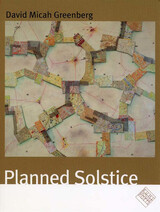
These poems move from imagistic inquiry toward political coherence and a sense of divided place. The book's four-part structure also echoes seasonal change and seeks among extreme—solstice-like—experiences the hope that separate lives may speak to one another. Throughout, images of contested growth, natural and human, ask the reader to see what is both organic and structural in settings of consciousness, space, and politics—to find what is free and what is also formed by consequence. Greenberg's are not facile pronouncements; they come to us after such rigorous deliberation, such painstaking examination, that they cannot but carry a hint of the oracular about them.
The poems in Planned Solstice should be read, re-read, and re-read again, as they yield a new crop, “a decision of field,"”every time one dares to venture in

The Panza Monologues is an original solo performance piece based on women's stories about their panzas—tú sabes—that roll of belly we all try to hide. Written, compiled, and collected by Virginia Grise and Irma Mayorga and fashioned into a tour-de-force solo performance, The Panza Monologues features the words of Chicanas speaking with humor and candor. Their stories boldly place the panza front and center as a symbol that reveals the lurking truths about women's thoughts, lives, loves, abuses, and living conditions.
This second edition of The Panza Monologues presents the performance script in its entirety, as well as a rich supporting cast of dramaturgical and pedagogical materials. These include a narrative history of the play’s development by the playwrights; critical materials that enhance and expand upon the script’s themes and ideas (a short introduction to San Antonio, where the play was developed; playwright autogeographies; and a manifesto on women of color making theater); and a selection of pedagogical and creative ideas, including guidelines and advice for staging a production of the play and for teaching it in the classroom, community-making activities (screenings, hosting “Panza Parties,” community/group discussions), and creative writing activities connected to the play.

Winner of the 2010 Drue Heinz Literature Prize
The Physics of Imaginary Objects, in fifteen stories and a novella, offers a very different kind of short fiction, blending story with verse to evoke fantasy, allegory, metaphor, love, body, mind, and nearly every sensory perception. Weaving in and out of the space that connects life and death in mysterious ways, these texts use carefully honed language that suggests a newfound spirituality.
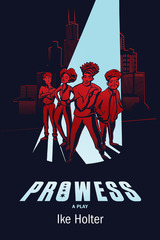
Avenging Chicagoans form a league for justice in Ike Holter’s superhero-inspired play, Prowess. In this heartfelt yet fantastical homage to Chicago, award-winning playwright Ike Holter introduces us to a quartet of “average” citizens who have been the victims of violence and felt powerless because of it.
In the face of the city’s seemingly intractable ills, the play’s characters join forces to rescue Chicago—and themselves. But how? With heart, wit, and wisdom, Holter explores how one responds to violence. Does a person focus on self-defense and personal survival? Or fight back—with more violence? Pulsating and physical, Prowess is about vulnerability, vigilantism, heroism, and self-knowledge.
Prowess is one of seven plays in Holter’s Rightlynd Saga, all to be published by Northwestern University Press. The other plays in the cycle are Rightlynd, Exit Strategy, Sender, The Wolf at the End of the Block, Red Rex, and Lottery Day.
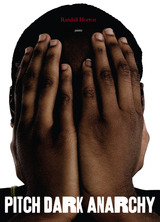
Pitch Dark Anarchy investigates the danger of one single narrative with multilayered poems that challenge concepts of beauty and image, race and identity, as well as the construction of skin color. Through African American memory and moments in literature, the poems seek to disrupt and dismantle foundations that create erasures and echoes of the unremembered. Pitch Dark Anarchy uses the slave revolt of the Amistad as a starting point, a metaphor for "opposition" and "against." These themes run through the very core for the book while drawing on inventive and playful language. The poems bring to life human experiences and conditions created by an "elite" society. In these poems, locations and landscapes are always shifting, proving that our shared experiences can be interchangeable. At the very core of Pitch Dark Anarchy is a seven-part poem based on the artist Margret Bowland’s "Another Thorny Crown Series," which are paintings of an African American girl in white face.
Through innovative formal and visual techniques, such as fractured syntax and typographical disruption, Horton evokes the disorienting experiences of urban life, while also calling into question the complicity of language in the oppressive structures he anatomizes.
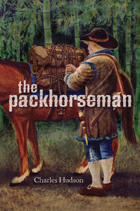
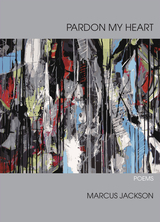
Pardon My Heart is an exploration of love in the contemporary African American ethos. In this lyrically complex collection, the speakers and subjects—the adult descendants of the Great Migration—reckon with past experiences and revelatory, hard-earned ideas about race and class.
With a compelling blend of narrative, musicality, and imagery, Jackson’s poems span a multitude of scenes, landscapes, and sensations. Pardon My Heart examines intimacy, memory, grief, and festivity while seeking out new, reflective sectors within emotion and culture. By means of concise portraiture and sonic vibrancy, Jackson’s poems ultimately express the urgency and pliability of the human soul.

An innovative poetic interrogation of wrestling, queerness, and staying true to oneself
Quinn Carver Johnson’s debut collection, The Perfect Bastard, follows its titular protagonist, a nonbinary and queer professional wrestler, as they travel across Kansas, Oklahoma, Arkansas, and Missouri, working for a booker known as the Puppeteer. Inspired by their idol Adrian Street, the Perfect Bastard strives to positively represent queerness and resist the Puppeteer’s stereotypical and demeaning kayfabe. In the ring, they face off against the likes of champion Jack Holiday and the First Crusher, but their most important battles, against the Puppeteer, take place behind the scenes. They must choose between person and persona, authenticity and humiliating hype, if they want to succeed in the industry.
When offered success on the grandest scale—the championship belt—in exchange for mocking their own queerness, the Perfect Bastard questions their path: Will they betray their identity to achieve their dream, or will they walk away from the world of professional wrestling—a world that refuses to make a genuine, healthy space for them?
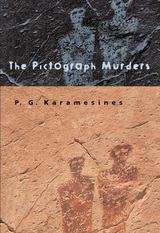

Moments are revealed in layers; we join the poet as she rides through fields on horseback, watches a woman testify on television, and comes to terms with her experiences of sexual abuse. Vivid recollections of emotionally charged minutiae—broken-in cowboy boots, the second button on a blouse, a housecoat patterned with pink begonias—remind us how even the smallest details can be fraught with both nostalgia and pain. Each poem wields power, with resonating narratives of fear and survival reminding us that suffering has no statute of limitations.
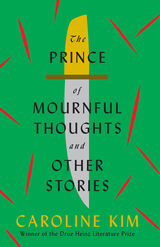
Finalist, 2021 Northern California Book Award
Longlist, 2021 PEN/Robert Bingham Prize
Longlist, 2020 The Story Prize
Exploring what it means to be human through the Korean diaspora, Caroline Kim’s stories feature many voices. From a teenage girl in 1980’s America, to a boy growing up in the middle of the Korean War, to an immigrant father struggling to be closer to his adult daughter, or to a suburban housewife whose equilibrium depends upon a therapy robot, each character must face their less-than-ideal circumstances and find a way to overcome them without losing themselves. Language often acts as a barrier as characters try, fail, and momentarily succeed in connecting with each other. With humor, insight, and curiosity, Kim’s wide-ranging stories explore themes of culture, communication, travel, and family. Ultimately, what unites these characters across time and distance is their longing for human connection and a search for the place—or people—that will feel like home.
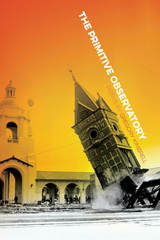
Kimbrell explores such themes as memory, class prejudice, family violence, and greed in a flamboyant, yet matter-of-fact style to create verse that is both amusing and unsettling. Combining prose that evokes H. P. Lovecraft, classical mythology, and Marcel Proust with the look and taut line of traditional formalist verse, the poems appear on the page as perfect rectangles, yet revel in narrative and linguistic absurdities.
The Primitive Observatory offers a dark and evocative experience through the tangible grotesque. Fans of David Lynch, Franz Kafka, Edward Gorey and the like will be startled, excited, and pleased by this entertaining and disturbing book of poetry.
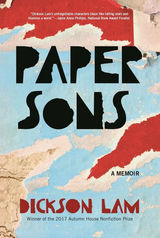
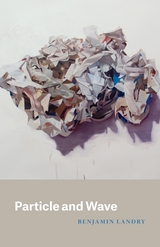
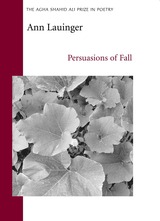
The Agha Shahid Ali Prize in Poetry was inaugurated in 2003 to honor the late poet, a nationally recognized author of numerous collections of poetry and a former professor at the University of Utah, and is sponsored by the University of Utah Press and the University of Utah Department of English. In Persuasion of Fall, the first prizewinning volume of the annual competition, Ann Lauinger celebrates the quotidian in ways that are wise, uncompromising, and sometimes sly in their playfulness.

There’s an undeniable audacity in a poet using the word “joy” in our beleaguered world. In her new book, Karen An-hwei Lee combines scientific precision and an appetite for far-flung vocabularies with a fascination for the sources of rapturous emotion.
In poems that roam from the intimacy of prayer to the art of brewing tea, from bamboo-related famine to quasars, the globe’s minor seas, and the nuptial flight of ants, Phyla of Joy reaches toward ecstasy.
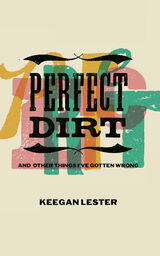
Words have meaning and meaning evolves over time. In Perfect Dirt, Keegan Lester drags us through his failure to grasp the meaning that always seems to be just beyond his fingertips. These lyrical vignettes depict a lifelong search for home, identity, and the language to say the things we wish we could tell people in the moment.
Born in Southern California to parents who had migrated from West Virginia and South Florida, Lester spent summers with his grandparents in Morgantown, which instilled a deep anchor of place that continued to call to him, an Appalachian at heart even while living in New York City as a poet. As small successes started to come his way—a book and numerous tours—so did crises. Lester’s father, meanwhile, experiencing his own life crisis, embarked on a journey to sail the Caribbean. Both end up lost.
Part memoir, part tour diary, part homage to the places and people who have made him who he is, Perfect Dirt digs into the sometimes painful, sometimes jubilant questions of identity and success. This is a book searching to better understand the world and our place in it, the family we’re born into, and the family we make along the way.
Hear the author read an excerpt from the Perfect Dirt.
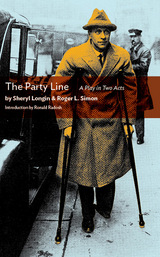



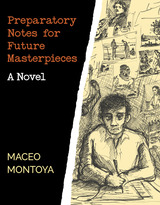
From critically acclaimed author Maceo Montoya comes an inventive and adventurous satirical novel about a Mexican-American artist’s efforts to fulfill his vision: to paint masterful works of art. His plans include a move to Paris to join the ranks of his artistic hero, Gustave Courbet—except it’s 1943, and he’s stuck in the backwoods of New Mexico. Penniless and prone to epileptic fits, even his mother thinks he’s crazy.
Ernie Lobato has just inherited his deceased uncle’s manuscript and drawings. At the urging of his colleague, an activist and history buff (Lorraine Rios), Ernie sends the materials to a professor of Chicanx literature (Dr. Samuel Pizarro). Throughout the novel, Dr. Pizarro shares his insights and comments on the uncle’s legacy in a series of annotations to his text and illustrations.
As Ernie’s uncle battles a world that is unkind to “starving artists,” he runs into other tormented twentieth-century artists, writers, and activists with ambitions to match his own: a young itinerant preacher (Reies López Tijerina); the “greatest insane artist” (Martín Ramirez); and Oscar Zeta Acosta who is hellbent on self-destruction. Will the fortuitous encounters with these prophetic figures result in his own genius being recognized? Or will his
uncompromising nature consign him to what he fears most?
Told through a combination of words and images in the tradition of classic works such as Don Quixote and Alice in Wonderland, Preparatory Notes for Future Masterpieces features fifty-one vivid black-and-white pen drawings. This complex and engaging story also doubles as literary criticism, commenting on how outsiders’ stories fit into the larger context of the Chicanx literary canon. A unique and multilayered story that embraces both contradiction and possibility, it also sheds new light on the current state of Chicanx literature while, at the same time, contributing to it.
Propulsive, humorous, and full of life, this candid novel will be loved not only by Beat fiction fans but by contemporary fiction lovers as well.

Written in loose sonata form, Pink Waves is a poem of radiant elegy and quiet protest. Moving through the shifting surfaces of inarticulable loss, and along the edges of darkness and sadness, Pink Waves was completed in the presence of audience members over the course of a three-day durational performance. Sawako Nakayasu accrues lines written in conversation with Waveform by Amber DiPietro and Denise Leto, and micro-translations of syntax in the Black Dada Reader by Adam Pendleton, itself drawn from Ron Silliman’s Ketjak. Pink Waves holds an amalgamation of texts, constructing a shimmering haunting of tenderness, hunger, and detritus.

PLEASURE is a book-length poem which muses on the phenomenology of solitude in a pastoral landscape, written in a diaristic, lyric mode, where the queer “I” alternately savors the decadence of isolation and stands at the precipice of despair. A travelogue in verse, PLEASURE takes place in Syros, the Greek island to which author Angelo Nikolopolous travels a few weeks after the discovery of his mother’s brain tumor. These intertextual, elliptical explorations of solitude and sensuality interweave images of seaside roaming, secluded town life, and ephemeral sexual encounters with the ubiquitous implication of death—the waning summer, the ill, perhaps dying, mother. Staring down true disconnection—both physical and psychic orphanhood —Nikolopoulos writes about the thrill and sadness of turning your back against the world and those in it only to rediscover that which tethers all to human experience: the quotidian, singular pleasures of having a body.
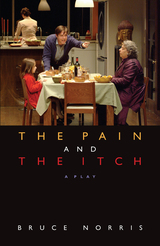
In this brief but staggering two-act, playwright Norris demonstrates his skill at drawing out the dark truth that lurks beneath the surface of the “perfect” family. His crackling satire takes dead aim at the self-satisfied, left-leaning American upper-middle class and its many self-delusions.
On a winter afternoon, Kelly and Clay—an attractive, prosperous, seemingly happy couple with a four-year-old daughter and a newborn baby—must explain to a visitor the events of the previous Thanksgiving, on which, so it seems, someone or something had been gnawing at the avocados on their kitchen table. In the course of this holiday gathering—attended by Clay’s mother, a well-meaning but clueless first-grade teacher who spouts pointless liberal bromides; his brother, a plastic surgeon with a nihilistic streak and a taste for martinis; and his brother's girlfriend, a sexy Balkan immigrant with a love for all things American (racism included)—the recent past is unearthed along with revelations of failed marriages, fraternal hatred, infidelity and venereal disease, in the form of their daughter’s nasty genital infection. And it’s a comedy. As the story is gradually unfolded to their visitor, a Muslim cab driver, his relationship to the events becomes increasingly clear, as does the emptiness of the family’s supposed benevolence and sensitivity.
With its crashing emotion and cutting humor, this vicious dissection of the comfortable progressive life lays bare the lies that people use to feel righteous even as they veer off a genuinely ethical path.
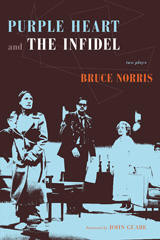
Loosely based on a true story, The Infidel tells of a charismatic and well-respected state Supreme Court justice who is faced with disciplinary action after his out-of-control affair with a young Latina junior staffer. He confers with his friend and attorney as he examines the consequences of his behavior and tries to judge the most difficult case of his life-his own. With dark irony and sharp, cutting dialogue, Bruce Norris explores sexual obsession and the legislation of human behavior.
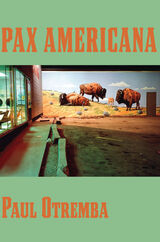
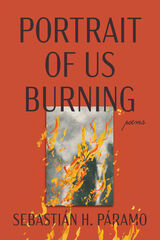
Sebastián H. Páramo renders a semi-autobiographical collection, utilizing self-portraiture and memory to uncover how his Texan, working-class, Mexican American identity shapes his relationship to his half brother and to his family’s burning desire to become American.
Portrait of Us Burning begins with the humble picture of an immigrant American family. This picture starts to disintegrate—and, ultimately, burns—with the need to understand an inciting event that haunts the family throughout the second half of the collection. As the poems gather force and the picture dissolves further, Páramo asks us again and again: What does it mean to burn while becoming a part of a whole?
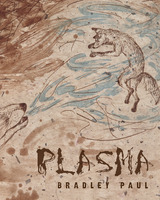
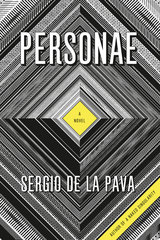
This book is nothing like that one. Just look at it: A Naked Singularity was a brick of a book, 678 pages, and this one’s slim--lean and focused. A Naked Singularity locked us into the unforgettable voice of its protagonist, Casi, while Personae shimmers and shifts among different perspectives, locations, and narrative techniques.
But sharp readers will quickly see that the two books are the work of the same hand. The sheer energy of De La Pava’s sentences, his eye for absurd humor, his commitment to the idea of justice--all will be familiar here as they carry us from the tale of an obsessive, damaged psychic detective consumed by a murder case, into a Sartrean drama that raises questions (and jokes) about responsibility, fate, death, and more. And when De La Pava eventually returns us to the investigation, this time seen from the other side, the lives and deaths bound up in it feel all the more real, and moving, even as solid answers slip away into mist.
Shelf Awareness declared that A Naked Singularity "heralded the arrival of a tremendous talent." In some ways, despite its brevity, Personae is even more surprising and challenging--and, in its ambition and fierce intelligence, it’s proof that Sergio De La Pava is here to stay.
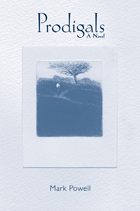
In the late summer of 1944, fifteen-year-old Ernest Cobb flees into the dense forests of the Blue Ridge Mountains. Behind him, in his South Carolina hometown, the girl he thought he had impregnated is being buried. Her shooting death was not Ernest’s doing, but Ernest fears that he will be implicated in it anyway. With little sense of where he is going or how he might survive, the boy makes his way northward.
Ernest’s journey brings him into the company of outsiders and drifters—an often violent subculture at the tattered fringes of wartime America. An aging mountain hermit, who was once a glassblower, rescues Ernest from the wilderness and nurtures him for a while. Eventually, Ernest finds himself in Asheville, North Carolina, where he goes to work as a dishwasher and rents a dingy room that he soon shares with a new girlfriend. When that relationship falters, Ernest accompanies an amiable but reckless friend, a boy called June Bug, to work at a logging camp. There they meet Jimmy Morgan, a wounded war veteran with his own dark secret. The convergence of these lost souls and their chance discovery of an injured child lead to further tragedy. By the end, the once-naive Ernest has begun to comprehend the gaping loneliness that defines much of human existence, but he has also come to sense the possibility of transcendence in the fleeting connections born of love.
With Prodigals, Mark Powell makes an impressive fiction debut. The author’s keen ear for dialogue, his understanding of character and motive, and his lean, taut language will make this novel linger long in the minds of readers.
The Author: Mark Powell lives in Mountain Rest, South Carolina. He studied creative writing at the University of South Carolina.

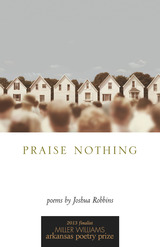
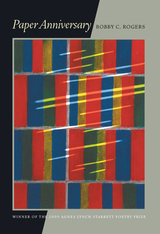
"There is something in American poetry that might be called the book of the small town or, equally, the tale of the good family; or, if you like, the American Grafitti Suite. Poems that discover life's bonuses in new love, wise parents, old books, venerable nature, and the mysteries of all that endures in the face of the viciousness no life escapes--are, well, worth the wait. That’s how I feel about Paper Anniversary. His poems are full of the best news, the kind the soul, as W. C. Williams attested, can get nowhere better than in the life of the lively mind. I think any reader will find this an auspicious, welcome arrival."
--Dave Smith
"In his superb Paper Anniversary, Bobby Rogers is a near mystic of the domestic because love of family and landscape is connected to the eternal--and if not the eternal, our longing for love to last. Rogers is a meditative poet, then, one who knows language and memory are inadequate to hold love in an abiding present: 'But ownership is the last lie/we tell ourselves--nothing goes unshared.' So his moving, widely thoughtful, and commodious poems are full of joy tinged with elegy."
--Andrew Hudgins
Bobby C. Rogers is professor of English at Union University in Jackson, Tennessee. His poems have appeared in the Southern Review, the Georgia Review, Image, Shenandoah, Puerto del Sol, and numerous other magazines. He is the recipient of the Greensboro Review Literary Prize in Poetry and has twice been nominated for a Pushcart Prize.
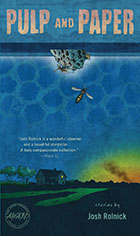
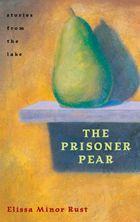
The twelve stories in The Prisoner Pear: Stories from the Lake take place in an affluent suburb of Portland, Oregon, but they could be taken from any number of similar enclaves across the United States. These stories infuse stark reality with occasional hints of magical realism to explore what the American dream means to twenty-first-century suburbanites. In a city where the homecoming queen still makes the front page of the weekly newspaper, ducks caught in storm drains and stolen campaign signs make up the bulk of the paper’s crime reports. The community’s hidden complexities, however, rival those of Sherwood Anderson’s Winesburg, Ohio.
Each of the stories begins with an entry from the newspaper’s police blotter. Elissa Minor Rust fills in the background to these small, odd events-a headless parakeet found in a mailbox, a nude jogger, an alarmingly deathlike discarded teddy bear. Her stories, both humorous and disturbing, probe beneath the clear, hard surface of a community into the murky depths beneath.
The lake at the center of town is a constant in the lives of this town’s people, and it reappears throughout the book as a symbol of wealth and power, of love and loss. The Prisoner Pear offers a rare look inside the heart of suburban America. Reading these stories is, as one character observes, “like seeing the town from the inside out, as if the lake was its heart and the rest merely its bones and skin.”

When life dwindles to its irrevocable conclusion, recollections are illuminated, even unto the grave. Such is the narrative of Paradise Field: A Novel in Stories, whose title is taken from a remote airfield in the American Southwest, and while the father recalls his flying days, his daughter—who nurses the old man—reflects as well.
Pamela Ryder’s stories vary in style and perspective, and time lines overlap as death advances and retreats. This unique and shifting narrative explores the complexities of a relationship in which the father—who has been a high-flying outsider—descends into frailty and becomes dependent upon the daughter he has never really known.
The opening story, “Interment for Yard and Garden,” begins as a simple handbook for Jewish burial and bereavement, although the narrator cannot help but reveal herself and her motives. From there, the telling begins anew and unfolds chronologically, returning to the adult daughter’s childhood: a family vacation in France, the grotesqueries of the dinner table, the shadowy sightings of a father who has flown away.
A final journey takes father and daughter back to the Southwest in search of Paradise Field. Their travels through that desolate landscape foreshadow the father’s ultimate decline, as portrayed in the concluding stories that tell of the uneasy transformation in the bond between them and in the transcendence of his demise. Taken together, the stories in Paradise Field are an eloquent but unsparing depiction of infirmity and death, as well as solace and provocation for anyone who has been left to stand graveside and confront eternity.

The focus of Present Past is her life after the Shoah. Rejecting stereotypes of survivors as traumatized or broken, Schieber is stark yet exuberant, formidable yet nuanced. The woman who emerges in Schieber’s Present Past is a multifaceted, heterogeneous figure—poet, artist, and survivor. In it, she plays the passionate observer who dispassionately curates the kaleidoscopic memories of her tumultuous personal and professional life in Belgrade, Prague, Tel Aviv, New York, and Chicago.
Organized into thirteen chapters, each a blend of images, poems, and narrative, this moving new work offers myriad points of entry to readers of these genres, those fascinated in the relationship between the Holocaust and art, as well as readers interested in memory and survivorship.
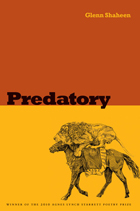
WINNER OF THE 2010 AGNES LYNCH STARRETT POETRY PRIZE
“Glenn Shaheen is claiming new ground for American poetry. His poems are about the nightmares of information overload, collapsing infrastructure, ubiquitous violence, and other ills of late empire. The subjects are not happy, but Shaheen's clear vision and crisp—often witty—language offer the pleasures of surprise, discovery, and recognition.”
—Ed Ochester
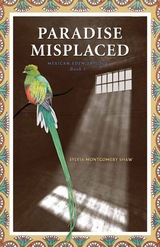
I knew the secret as a child before anyone else did—that God planted the Garden of Eden just seventy-five kilometers south of Mexico City, near the town of Cuernavaca. He scattered seeds so only the most colorful flowers and the best climbing trees would grow in that semitropical paradise. He filled the stables with the fastest, strongest Arabians; mother’s aviary with more birds than anywhere else in the world. Then he constructed a wall twice as tall as Father and encircled our Eden to keep it safe. We named the garden the Hacienda of San Serafin. I swore that I would spend the rest of my life there, where nothing bad ever happens . . .
Captain Benjamín Nyman Vizcarra, son of the wealthiest man in Mexico, has everything a young man could want. But in the days leading up to the Mexican Revolution of 1910, he finds himself questioning whether he can support the old regime—and more and more distracted by his brother’s bewitching fiancee, Isabel. Setting out to expose her as a gold-digger, he instead falls deeply in love, setting himself on a path that leads to war, poverty, and alienation from his family.
Accused and convicted of his father’s murder after a fateful late-night encounter, Benjamín faces his inner demons, beginning a process that Swedenborg describes as regeneration. As he plots escape with a fellow prisoner, a Tarahumara Indian known only as El Brujo, he relives his love affair and eventual marriage to Isabel. A new question begins to form: will he run, or will he stay to confront his mistakes and win back the woman he loves?
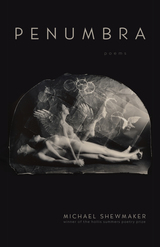
Penumbra—Michael Shewmaker’s debut collection—explores the half-shadows of a world torn between faith and doubt. From intricate descriptions of the rooms in a dollhouse, to the stark depiction of a chapel made of bones, from pre-elegies for a ghostly father, to his compelling treatment of his obsessed, human characters (a pastor, a tattoo artist, a sleepwalker, to name only a few), these are poems that wrestle with what it means to believe in something beyond one’s own mortality. Learned and formally adept, these poems consist of equal parts praise and despair. They announce Shewmaker as an important new voice in American poetry.
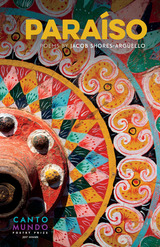
Paraíso, the first book in the new CantoMundo Poetry Series, which celebrates the work of Latino/a poets writing in English, is a pilgrimage against sorrow. Erupting from a mother’s death, the poems follow the speaker as he tries to survive his grief. Catholicism, family, good rum . . . these help, but the real medicine happens when the speaker pushes into the cloud forest alone.
In a Costa Rica far away from touristy beaches, we encounter bus trips over the cold mountains of the dead, drug dealers with beautiful dogs, and witches with cell phones. Science fuses with religion, witchcraft is joined with technology, and eventually grief transforms into belief.
Throughout, Paraíso defies categorization, mixing its beautiful sonnets with playful games and magic cures for the reader. In the process, moments of pure life mingle with the aftermath of a death.

Planted by the Signs brings us the contemporary Appalachian poetry—cultivated in the dirt of Elliott County, Kentucky—of Misty Skaggs. With an eye for details that exquisitely balance personal and social observation to communicate volumes, she tells the stories of generations of women who have learned to navigate a harsh world with a little help from the Farmers’ Almanac and the stars. The collection is separated into three sections that reference the best times to grow and harvest. Knowing and following these guidelines—planting by the signs—could mean the difference between prosperity and tragedy in the lives of Appalachian families.
Personal, political, and passionate, Planted by the Signs also explores what it means for Skaggs to care for her great-grandmother at the end of her life. Color photos by the poet further showcase her sidelong and fierce outlook. The images and poems together deliver an intimate look into the day-to-day reality of a backwoods woman embracing barefooted radicalism in the only place she could call home.
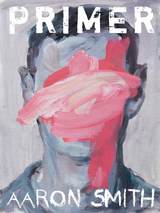
Smith's poetry explores that inexplicable tension between what we say and how we actually feel, exposing the complications of intimacy and the limitations of language to bridge those distances between friends, family members, and lovers. What we deny, in the end, may be just what we actually survive.
Mortality in Smith's work remains the uncomfortable foundation at the center of our relationship with others, to faith, to art, to love as we grow older, and ultimately, to our own sense of who we are in our bodies in the world.
The struggle of this book, finally, is in naming whether just what we say we want is enough to satisfy our primal needs, or are the choices we make to stay alive the same choices we make to help us, in so many small ways, to die.

In this sophisticated debut collection, Ronald F. Smits deftly weaves the comic with the tragic as he vividly recreates days past in rural Pennsylvania. With a boyish charm, the eighty poems in Push lyrically recall baseball games, campouts under the stars, and dusty treks along lonely back roads—bringing to life a vision of mid-century America that is by turns nostalgic and clear-eyed, humorous and heartfelt. A masterly evocation of a place and a time that feel quintessentially American, Push opens our eyes to the twinned power of literature and memory.
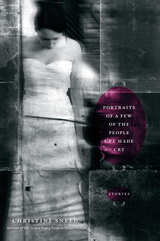
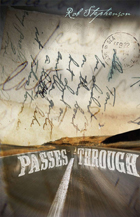
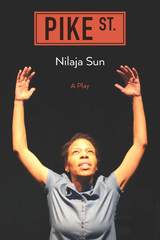
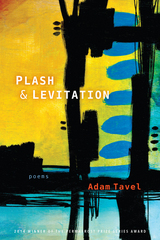
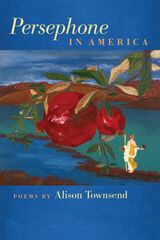
In Persephone in America, Alison Townsend deftly weaves autobiography with myth in this reinvention of the tale of Demeter and Persephone as seen from the modern woman’s perspective. Fraught with emotional honesty, this captivating collection of lyrical and narrative poems chronicles the struggles of the figurative Persephone in three parts—the abduction, descent to the underworld, and return. Townsend turns a shrewd eye to her own experiences, as well as to the lives of other women, to offer an unflinching yet deeply compassionate exploration of such themes as girlhood and the vulnerability of the motherless; the demons of depression, addiction, and abuse; as well as passion, aging, and celebration of the natural world.
Although the poems traverse dark emotional territory at times, the picture that emerges ultimately is one of revelation and wisdom. Persephone in America is above all a journey of the soul, following the narrator as she explores what it means to be a woman in America, at times descending into darkness, only to emerge into redemption and realize “time’s sweet and invincible secret—that everything repeats—and we watch it.” Townsend’s candid portrait of female loss and discovery seeks to illuminate the truths inherent in myth, and the awakenings that hide in our darkest moments.
Persephone, Pretending(Madison, Wisconsin)
When the news says that the girl
who had been missing almost four days,
only to be found in a marshy area
at the edge of our medium-sized city,
was faking it all along, I wondered
what made her do it. I'd seen
her face—bright smile, dark eyes—
on a flier masking-taped to a pillar
at the airport the week before,
felt the involuntary frisson
of the curious, then only fear
at the thought of a girl abducted
in this place once voted
"America's most livable city."
She must have wanted
something she couldn't name,
that good girl with good grades
who looks like so many girls
in my own classes, but who keeps
changing her story. It happened
here; no, it happened there; no,
I really just wanted to be alone.
Then she turns her face away,
tired of telling her tale,
not sure what to make up next
or where invention will take her.
“Fictitious victimization disorder,”
Time magazine claims, but I wonder
what else, imagining her in the marsh,
cold, unrepentant, powerless, her mind
gone muddy with lack of sleep,
no way out of this lie she almost
believes, or the lies ahead,
nothing but memory of the rope,
duct tape, cough medicine,
and knife she bought at the PDQ
with her own cash, wanting
to be taken by someone so badly,
she takes us, she does it to herself.


Jorrell Watkins's debut poetry collection is a polyvocal, musically charged disruption of the United States's fixation on drug and gun culture. The poems in Play|House embody many identities, including son, brother, fugitive, bluesman, karate practitioner, and witness. Throughout, Watkins inflects a Black/trap vernacular that defamiliarizes the urban Southern landscape. Across three sections of poetry scored by hip-hop, blues, and trap, Watkins considers how music is a dwelling and wonders which histories, memories, and people haunt each home. Past figures such as John Coltrane, Billie Holiday, and the short-lived 1940s trio Day, Dawn & Dusk intermingle with Migos, the Watkins family, childhood friends, and loved ones both parted and departed. At its core, Play|House reckons with the truths and failures of masculinity for Black boys and men, all the while documenting moments of triumphant Black joy and love.
READERS
Browse our collection.
PUBLISHERS
See BiblioVault's publisher services.
STUDENT SERVICES
Files for college accessibility offices.
UChicago Accessibility Resources
home | accessibility | search | about | contact us
BiblioVault ® 2001 - 2024
The University of Chicago Press









